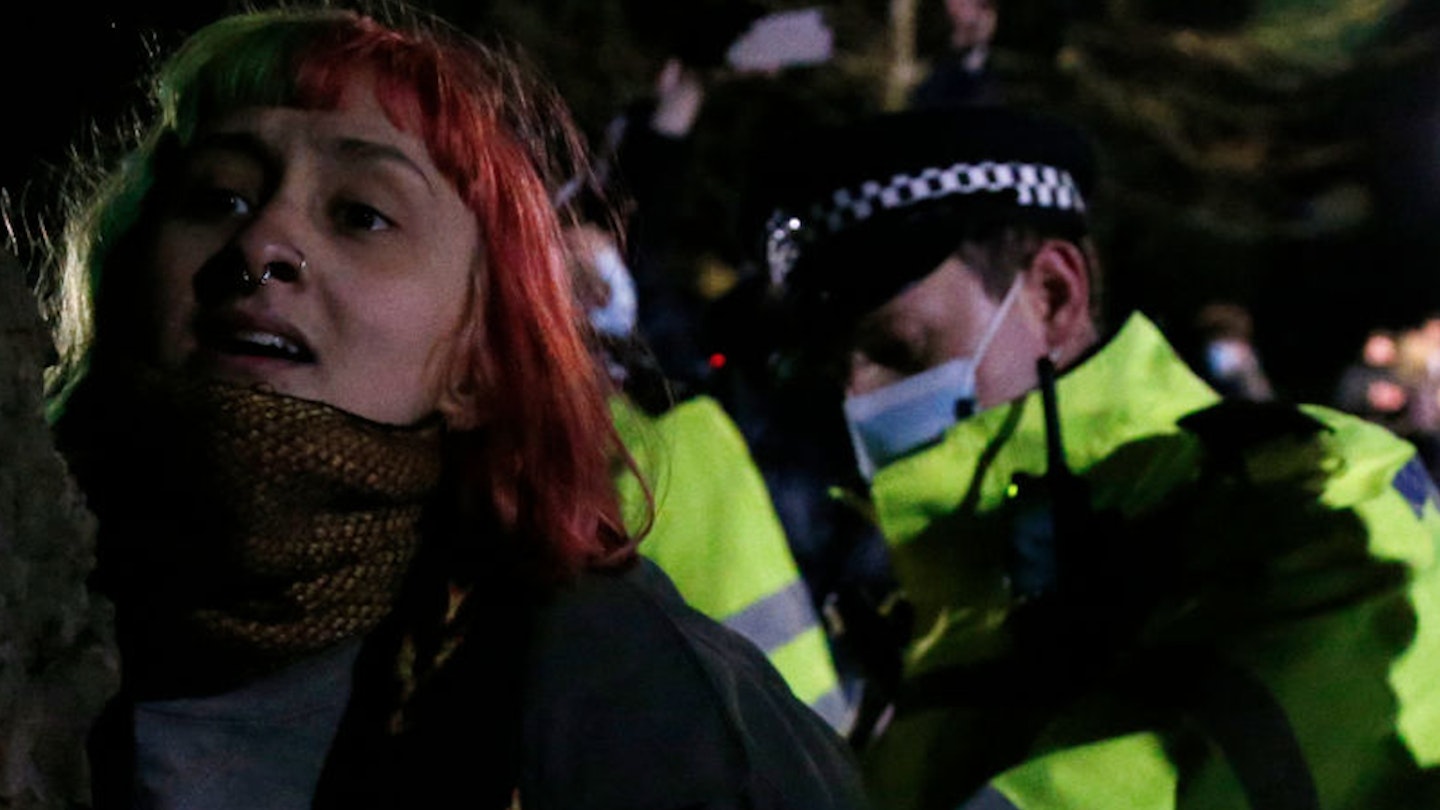Sarah Everard was abducted on a well-lit street. She didn’t struggle or scream for help because she thought she was under arrest. Her killer, Wayne Couzens, used his position of power as a Metropolitan Police officer to commit Sarah’s rape and murder. And this Wednesday a horrifying report, demanded after Sarah’s death, has found numerous others found guilty or accused of sexual assault and domestic abuse are working as police officers in the UK.
Fundamentally, routine vetting is meant to stop dangerous people joining the police force. It should be carried out when candidates first apply for the job and is then reviewed every seven to 10 years after that. But very evidently there is a flaw in this system because, according to the latest report from His Majesty's Inspectorate of Constabulary, Fire and Rescue Services (HMICFRS), that vetting has allowed numerous predators to become new police candidates and permanent officers.
Among the cases detailed were: One candidate who had been convicted of indecent exposer, an officer who had been investigated for an accusation of sexual assault in a nightclub, another who had transferred to the police despite numerous allegations of sexual assault, a third who was accused of sexually touching a member of the public and junior officers yet was transferred to another force. And one applicant was granted clearance to serve on his third application, thanks to an admin error, despite subletting his flat to solicit sex from women.
‘We found a culture where misogyny, sexism and predatory behaviour towards female police officers and staff and members of the public still exists,’ says the report. ‘Worryingly, the cases we examined didn’t result in rejection.’
This is the badly regulated system we are supposed to put our faith in to protect us. What's more, as horrifying as the report is, it proves what many people already suspected: Wayne Couzens was not an anomaly — he was part of a wider system that allows violent and sexually aggressive people to be placed into positions of power across the UK as police officers …police officers we are expected to trust.
Six years before Couzens raped and murdered Sarah, he had been investigated for indecent exposure and accused of driving naked from the waist down. His colleagues jokingly referred to him as ‘the rapist’. Yet he and many other people who have displayed predatory behaviour have been allowed to serve. How are women meant to feel safe calling officers for help? Allowing them into their homes? Getting into their cars? Simply put: we don’t.
After Sarah’s death, half of the women in the UK (47%) said they had lost trust in the police, according to a YouGov poll – a number we can assume will rise after the latest damning report.
‘The police are supposed to be the first line of defence for women and girls,’ Ruth Davison, chief executive of the domestic abuse charity Refuge tells Grazia in a statement. ‘Yet wholly inadequate practices are allowing the wrong people to join, and stay in, the force, and turning a blind eye when these officers commit crimes, or display behaviours which should have no place in the force.
‘[This report] presents an overview of abhorrent behaviours and practices running deep within the police force across the country,’ she continues. ‘The time for words and commitments to review is over. Only radical reform and a zero-tolerance policy will go anyway to restoring trust in the police.’
Trusting the police to protect you is evidently a right reserved for the most privileged in the UK — a reality that minoritised women and men have warned the public of for decades. ‘I tell my three boys all the time that the police are here to help look after you - but I know deep down that's not necessarily the truth,’ onemother told Grazia last month.
The National Police Chiefs’ Council Chair, Martin Hewitt, told Grazia in a statement that chief constables, supported by national groups, will act on the HMICFRS report’s recommendations ‘and put the problems right because we cannot risk predatory or discriminatory individuals slipping through the net because of flawed processes and decision-making.’
Yet, these ‘changes and actions’ to ‘improve standards in vetting, misconduct and counter-corruption’ are going to take time to cause any seismic shift and consequently offer very little by way of reassurance.
All we really have for now are the statistics: over 750 Met police officers have been accused of sexual misconduct in the past 11 years, yet only 83 of them were sacked. Additionally, 771 staff and officers (88% of whom are still serving) have faced allegations of sexual misconduct since 2010.
On Thursday, the court had the opportunity to exemplify this repulsive behaviour will not be tolerated within the police. Instead, the two Met officers who sent sickening messages about raping a female colleague in a WhatsApp group with Wayne Couzens were sentenced to 12 weeks each in jail — a measly punishment they can still appeal while they're on bail.
Right now, women in the UK are still asking the same question that was scrawled across two protestors’ placards at the Sisters Uncut vigil outside New Scotland Yard after Sarah’s murder almost two years ago: ‘How can you police the streets, if you can’t police the police?... They won’t protect us, they’ll attack us.’
